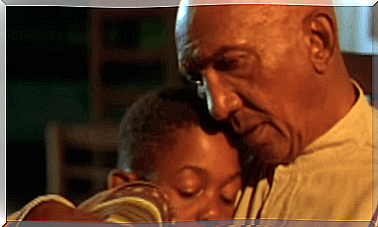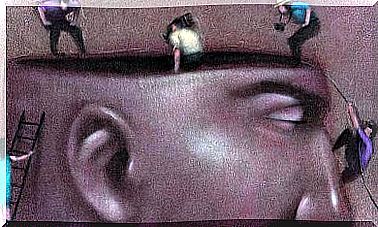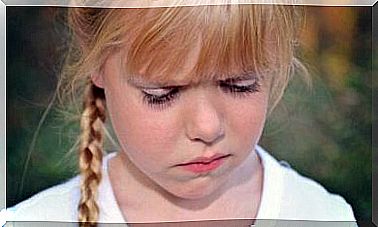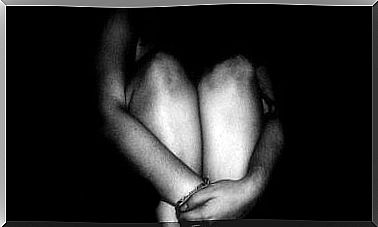Resentful People And The Psychology Of Resentment

The rancorous people lugging perennially pieces of glowing embers are ready to hurl at those who offend. However, it is not the others who get burned, but they, by dint of holding that burning burden in their hands, that source of anger, hatred and malaise.
We all know bitter people , but there is one aspect that sometimes goes unnoticed. This dimension, this deep and self-destructive feeling, is not exclusive to those who ignore forgiveness. It is much deeper and full of opposing nuances and dimensions that each of us, at a given moment, can experience.
Grudge is a very recurring feeling. For example, those who have been injured, betrayed or abandoned by their family prove it. Those who have been deceived by their partner suffer from it. Resentment is also that permanent feeling that germinates in those who have survived a war or an armed conflict. These are situations that are understandable, but not healthy from a psychological point of view.
Resentment is characterized by a highly harmful element: chronicity. It is a state of anguish that is prolonged over time, which is dragged along by making it interfere in all areas of one’s life. Mood changes, trust in others is lost, attitudes change and even the type of treatment we reserve for those around us is altered.
Grudge is like oxide, it extends and ends up weakening the whole structure, the whole identity
Resentful people: characteristics and psychological profile
Grudgeful people keep a safe. Within it they hide the weight of the offense received, the pain of deceit, betrayal or even abandonment. Their safe is armored for an obvious reason: they don’t want to forget even a second of what happened. Thus, all of their emotional wounds are compressed and secured, as well as all the sadness that has turned into anger and then into hatred.
But a final component is also added to this psychological fabric: the desire for revenge. Not necessarily in the strict sense or in violent terms. In most cases, the real desire is that the person who offended them be repaid in the same coin, experience the same suffering and under the same conditions. Knowing this, it is common for resentful people to exhibit the following characteristics.
Inability to forgive
Sometimes forgiving isn’t easy, we know. However, we must always remember that forgiveness is above all a step that allows us to close a stage and recover emotional balance. The resentful person is unable to forgive and for this reason he only feeds his resentment, constantly remembering the weight of the offense or the damage suffered.
He therefore enters a vicious circle that feeds and intensifies his suffering. Studies such as the one conducted at the University of Pisa and published in the journal Frontiers in Human Neuroscience reveal that feeding resentment opens up the emotional wound even more. Conversely, the act of forgiveness regulates numerous neuronal structures, promotes calm, reduces stress and activates areas such as the prefrontal cortex (linked to problem solving).

Dichotomous thinking
“Either you are with me or against me. Things are black or white, you either help me or you betray me ”. Such approaches are typical of a clear cognitive distortion. It is a rigid thought pattern that resentful people do not even realize, so used to bordering on extremes, to choosing polarized positions. In doing so, they only establish huge and bitter distances with the people around them.
Pride that gives no respite
Pride is a workhorse that tramples, flattens and transforms anything you step on. This characteristic leads resentful people to always be on the defensive, and for a trifle they feel hurt. It is not easy to live, talk or find an agreement with those who always let themselves be carried away by pride, with those who always take everything personally.
Inability to meet emotional and psychological needs
We all have the full right to experience negative feelings towards those who have hurt us. However, there is one aspect that does not fall within psychological normality: to keep that anger permanently, that painful memory and the imprint that accompanies it, eventually transforming it into chronic bitterness.
We have a moral duty to accept the past and move forward. This does not mean forgetting, but simply learning to use certain psychological strategies to fight with wounds and allow ourselves new possibilities. Those who are not capable of it, those who cannot find a way out to escape from so much anger and bitterness, end up making rancor their form of life.

How to annihilate the rancor that grips and dominates us?
An interesting study carried out at the University of Ontario, Canada, talks about the need to provide resentful people with tools to implement emotional forgiveness.
This dimension, this health exercise, is crucial because it allows us to free ourselves from negative emotions to generate a new psychological reality from which we can start working.
Here are some of the tools you need:
- The subject must work on the flexibility of his thinking, to learn to see things from new perspectives.
- It must be helped in the management of anger, a dimension inhabited by distorted thoughts and an unhealthy physiological activation.
- He needs distractions to be able to divert his gaze from the past to the present. Eating only the negative thoughts of yesterday prevents you from living in freedom. Therefore it is better to start new projects with which to gain new experiences and start new hobbies or relationships.
Rancor is a bottomless abyss and a land without borders. Nobody deserves to live in such a scenario. Let us therefore learn to build an escape route, a path to free ourselves and breathe with greater tranquility and dignity.









